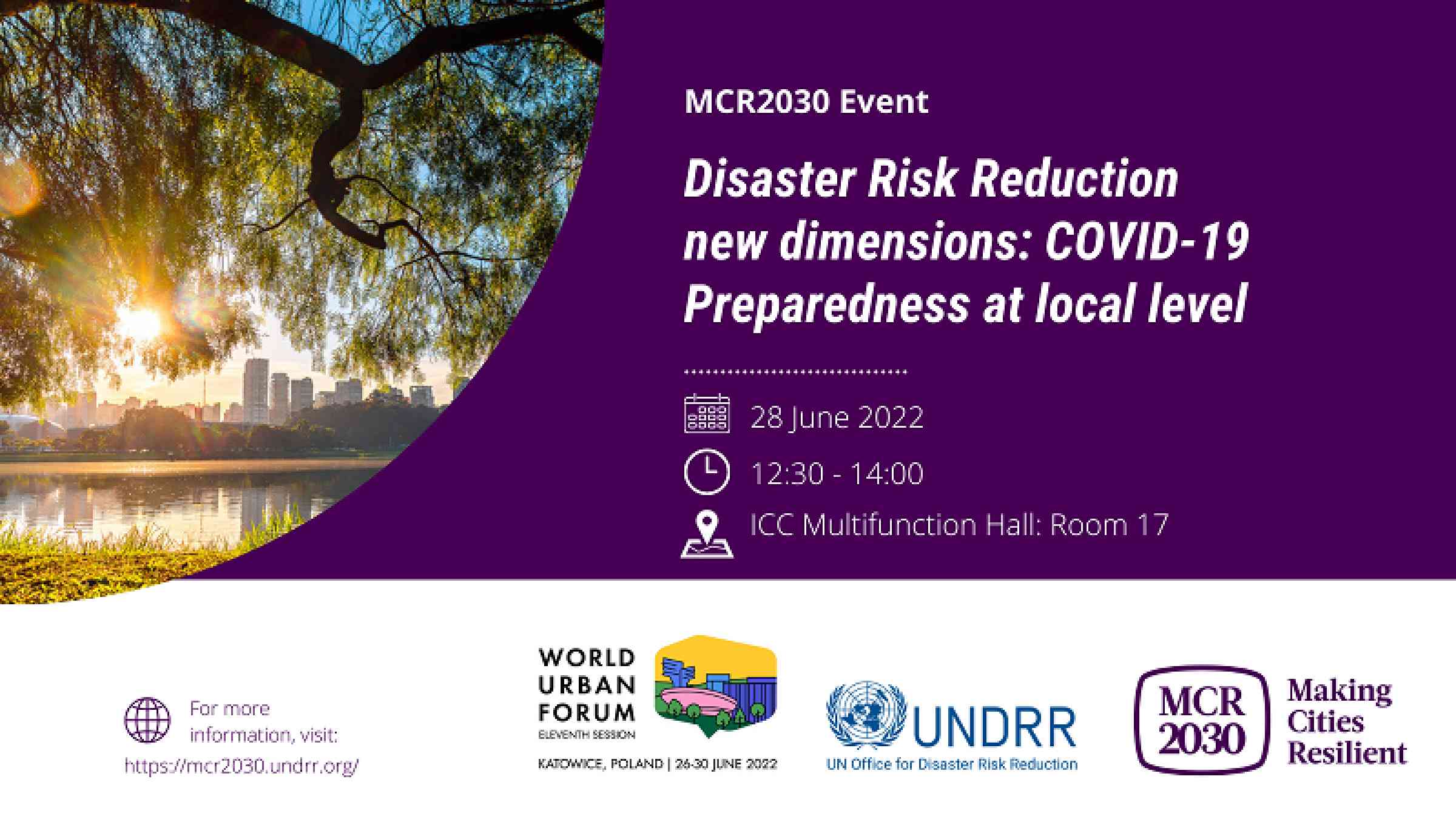WUF 11: Networking event: Disaster Risk Reduction new dimensions: COVID-19 preparedness at local level

Plac Sławika i Antalla 1 40-163, Katowice, Silesian Voivodeship, 40
ICC Multifuctional Hall, Room 17
The COVID-19 pandemic is an unprecedented event in modern human history. It has exposed the vulnerabilities of our societies and its impacts go far beyond the health sector, hitting the world's most vulnerable the hardest. It is an example of systemic risk: when a hazard leads not only to negative effects in parts of the system but also threatens the failure of the entire system.
Globally, cities are dealing with the COVID-19 pandemic against a backdrop of shocks, pressures, and growing vulnerabilities, all while attempting to prioritise justice, economy, and climate action as part of their recovery efforts. This is the opportunity for national and municipal governments to build back better and re-establish themselves as stronger, fairer, and more environmentally friendly than before.
This session aims to showcase how cities and partners are working together under the framework of the Making Cities Resilient 2030 initiative to create solutions and share these practices with peer cities. It will provide insights on several critical problems that need to be better understood to improve epidemic and pandemic preparedness at the city/local level. Pandemic preparedness has to be holistic and build national to local resilience that integrates public health and disaster risk management. This is core to the pandemic planning and preparedness, together with adequate risk communication, risk perception and risk-informed behaviour of communities at risk
This session is organized by the Making Cities Resilient 2030 (MCR2030) Regional Coordination Committee for Europe and Central Asia, a diverse group of stakeholders committed in driving MCR2030 in Europe and Central Asia. Its members include several UN Agencies, such as UNDRR, UNDP, UNECE, UN-Habitat and WHO, different cities’ networks and international organizations such as Resilient Cities Network, ICLEI, the Swedish Civil Contingencies Agency, the International Federation of Red Cross and Red Crescent Societies, as well local government representatives from cities, such as Amadora, Paris and Greater Manchester.
Speakers:
Prof. Dilanthi Amaratunga, head of Global Disaster Resilience Centre, University of Huddersfield
Ms. Maria Vittoria Beria, Head of the International Relations Department, Milan
Mr. Jakub Mazur, Deputy Mayor, Wroclaw
Mr. Andy Deacon, Managing Director, Global Covenant of Mayors
Ms. Helena Monteiro, UNDRR
Please note that the event will take place in person at the Eleventh Session of the World Urban Forum in Katowice, Poland. To access the venue the accreditation for the WUF 11 is required. Register for WUF11 here.
Time
12:30 - 14:00
About MCR2030 Initiative:
Making Cities Resilient 2030 (MCR2030) is a unique global cross-stakeholder initiative improving local resilience by making cities safer, preventing risks, and promoting innovation and investments. Building on the Making Cities Resilient Campaign which began in 2010, MCR2030 welcomes cities, local governments as well as any other parties wishing to help cities prosper through advocacy, knowledge-sharing and city-to-city networks.

